
Gino Vannelli is a Canadian rock singer and songwriter who had several hit songs in the 1970s and 1980s. His best-known singles include "People Gotta Move" (1974), "I Just Wanna Stop" (1978), "Living Inside Myself" (1981) and "Wild Horses" (1987).

"Since I Don't Have You" is a song written and composed by Jackie Taylor, James Beaumont, Janet Vogel, Joseph Rock, Joe Verscharen, Lennie Martin, and Wally Lester. It was first a 1958 hit single for the doo-wop group the Skyliners on the Billboard Hot 100. Country music singer Ronnie Milsap had a hit with the song in 1991. American hard rock band Guns N' Roses also had some success in 1994 with their version of the song which reached the top 10 on the UK Singles Chart.

"Breaking Up Is Hard to Do" is a song recorded by Neil Sedaka, co-written by Sedaka and Howard Greenfield. Sedaka recorded this song twice, in 1962 and 1975, in two significantly different arrangements, and it is considered to be his signature song. Between 1970 and 1975, it was a top-40 hit three separate times for three separate artists: Lenny Welch, The Partridge Family and Sedaka's second version.

"Hey Nineteen" is a song by the band Steely Dan from their album Gaucho (1980).
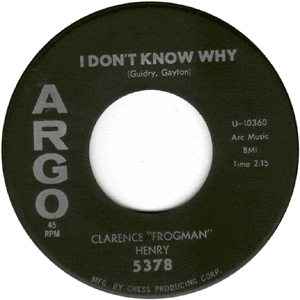
"(I Don't Know Why) But I Do" is an R&B song written by Paul Gayten and Bobby Charles, and performed by Clarence "Frogman" Henry.

"Another Saturday Night" is a 1963 hit single by Sam Cooke from the album Ain't That Good News. The song was written by Cooke while touring in England when staying in a hotel where no female guests were allowed. It reached No. 10 on the Billboard Hot 100 and was No. 1 on the R&B chart for a single week. In the UK, the song peaked at No. 23 on the UK Singles Chart.
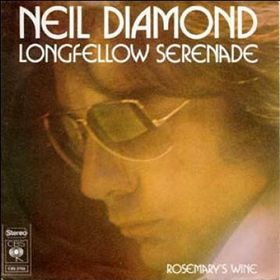
"Longfellow Serenade" is the title of a 1974 song by the American singer-songwriter Neil Diamond. It was written by Diamond, produced by Tom Catalano, and included on Diamond's album Serenade.

"Time" is a song released in 1981 as a single by the Alan Parsons Project. It was from their 1980 album The Turn of a Friendly Card. In the U.S., the song peaked at No. 15 on the Billboard Hot 100. On the U.S. Adult Contemporary chart, "Time" peaked at #10. In addition, "Time" spent two weeks at #14 on Cash Box, making it the group's second most successful single. Cash Box ranked it as the 94th biggest hit of 1981. Outside the US, the song peaked at #30 in Canada.

"How 'Bout Us" is the most successful single released by R&B music group Champaign. Composed by band keyboardist Dana Walden and originally released on the band's debut album How 'Bout Us, the title track peaked at number 12 on the Billboard Hot 100. A romantic ballad, the song was released on Valentine's Day, 1981.

"My Boy" is a popular song from the early 1970s. The music was composed by Jean-Pierre Bourtayre and Claude François, and the lyrics were translated from the original version "Parce que je t'aime, mon enfant" into English by Phil Coulter and Bill Martin.

"What You Won't Do for Love" is a song by American singer-songwriter Bobby Caldwell. It was released in September 1978 as the lead single from his eponymous debut album. It was written by Caldwell and Alfons Kettner, and produced by Ann Holloway. The song has been covered and sampled numerous times, including by Tupac Shakur in the posthumous 1998 hit "Do for Love".
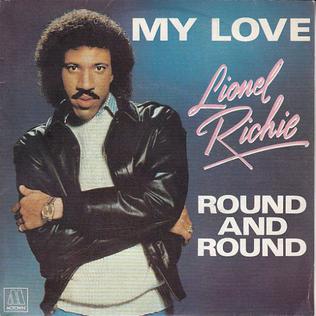
"My Love" is a song by American singer-songwriter Lionel Richie. It was released in 1983 as the third and final single from his self-titled debut solo album. The song features harmony backing vocals by country music singer Kenny Rogers. It reached the top 10 on three notable Billboard magazine charts in the spring of 1983: on the pop chart, the song peaked at No. 5; on the Adult Contemporary chart, the song spent four weeks at No. 1; and on the R&B chart, the song topped out at No. 6. "My Love" was not among Richie's more successful singles in the United Kingdom, where it only managed No. 70 on the UK Singles Chart. In Canada, it peaked at No. 28 on the RPM Top 100 Singles chart.

"Yesterday's Songs" is a 1981 single by Neil Diamond from his album On the Way to the Sky. The song was a major adult contemporary radio hit, spending six weeks at #1 on the U.S. Billboard chart and four weeks atop the Canadian Adult Contemporary chart. On the Billboard Hot 100, it peaked at #11. On the Canadian pop charts, the song reached #15. "Yesterday's Songs" is ranked as the 77th biggest American hit of 1982.

"Desirée" is a 1977 song written and recorded by Neil Diamond and included as a track on Diamond's 1977 album, I'm Glad You're Here with Me Tonight. The single peaked at number 16 on the Billboard Hot 100 and reached number one on the U.S. Easy Listening chart to become his fifth number one on that chart. The song likewise reached number one on the Canadian AC chart.

"Theme from The Greatest American Hero" is a song composed by Mike Post with lyrics by Stephen Geyer, and sung by American singer Joey Scarbury. It serves as the theme song for the 1980s television series The Greatest American Hero. The track was later included on Scarbury's 1981 debut album America's Greatest Hero.
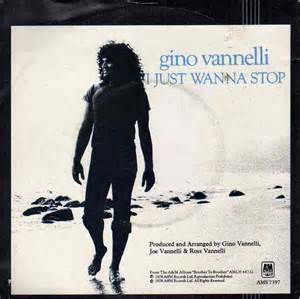
"I Just Wanna Stop" is a song by Canadian singer/songwriter Gino Vannelli. Released as a single in August 1978, it remains his biggest hit single to date, reaching No. 1 in his native Canada and No. 4 on the U.S. Billboard Hot 100. It appears on his sixth album, Brother to Brother. The recording was produced by Gino and his brothers, Joe and Ross Vannelli; the song was written by Ross. It received a nomination for Grammy Award for Best Male Pop Vocal Performance.

"Stormy" is a hit song by the Classics IV released on their LP Mamas and Papas/Soul Train in 1968. It entered Billboard Magazine October 26, 1968, peaking at #5 on the U.S. Billboard Hot 100 chart and #26 Easy Listening. The final line of the chorus has the singer pleading to the girl: "Bring back that sunny day". The single, along with the prior release of "Spooky" and, soon after, the release of "Traces", formed a trio of solid hits for the band.

"We're in This Love Together" is a 1981 hit song by Al Jarreau. It was the first of three single releases from his fifth studio album, Breakin' Away. The song was his first and biggest chart hit.

"Sweet Dreams" is a song by English/Australian soft rock duo Air Supply from their sixth album, The One That You Love. The song reached No. 5 on the Billboard Hot 100 and No. 4 on the Adult Contemporary chart in early 1982. The song also reached No. 8 on Cash Box. In Canada, it peaked at No. 14 on the RPM Top 100 and No. 15 on the Adult Contemporary chart.
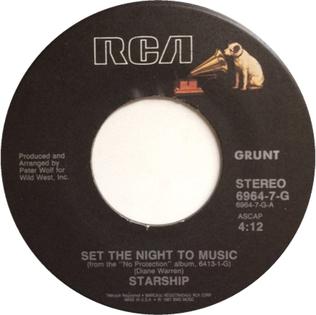
"Set the Night to Music" is a song written by Diane Warren and recorded by Starship on their LP, No Protection (1987). It became a major hit for Roberta Flack in 1991. Starship's original version became a Top 10 hit on the U.S. Billboard Adult Contemporary chart, reaching number nine in the spring of 1988, and also charted minorly in Canada. The song appeared at the end credits of the 1988 fantasy-comedy film Vice Versa starring Judge Reinhold and Fred Savage.




















